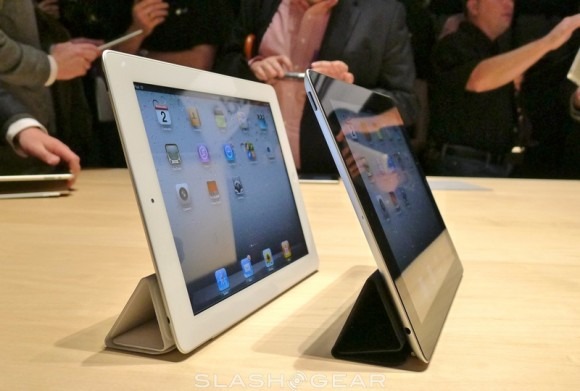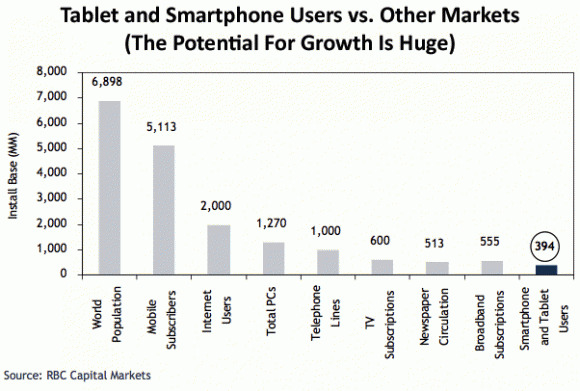iPad 2: Post-PC is Premature
The "post-PC" world. Sounds great, doesn't it. No more malware headaches, none of that awful association with dull cubicle work. Steve Jobs sits in a comfy chair and pages happily through his latest productivity-slash-entertainment apps; we imagine ourselves soaking up the WiFi in our local coffee shop, whiling our days shooting 720p video, editing it and uploading it all in one fell swoop. Dump your desk chairs, throw away your mouse mats. The iPad 2 has saved us from our shackles and shown us the light.
It's easy to get caught up in Jobs' rhetoric. Sure, people are buying Macs, but look how many iPads we've sold. See how well we slotted this slice of finger-friendly beauty into peoples' lives. This is no inflated iPod touch, and if you thought it was – if, you narrow minded fool, you still quietly think that it is – then you're simply part of the Old School of dreary PC pushers. Still, it's also just as easy to poke holes in the hyperbole. A post-PC tablet that demands a computer to set it up in the first place?

So, what exactly has the iPad 2 delivered on top of the first-gen model? Now, don't get me wrong, I'm not saying the original iPad wasn't groundbreaking in its way: it shaped the consumer tablet market and impacted on the enterprise as well, helped create an expectation from Android that Honeycomb, for all its strengths, will have difficulty meeting. The iPad 2, though, feels very much an incremental, "because it was time" update – akin, as many have pointed out, to the iPhone 3G to 3GS evolution. If, as the leaks and rumors suggest, Apple is actually building up to an iPad 3 later this year then this second-gen model feels a lot like an attempt to merely tide things over until that takes place, to suck away some of the attention Google has been gathering with Android 3.0.
Again, don't misunderstand. Apple perhaps didn't need to do much to the iPad because, let's face it, they're leading the market right now. The iPad 2, with its faster guts packed into a skinnier body, raises the bar that little bit higher, keeps the rivals on their toes. It's already worked with Samsung, executives apparently scurrying back to the lab to think how they can make their Galaxy Tab 10.1 cheaper and more competitive.
No, what rankles is the language, the presentation. Steve Jobs is a master salesman, little doubt about that, but this time around the rhetoric feels at odds with the product. His iPad 2 isn't just "magical" any more, it's segment busting, paradigm changing. He brought a quicker, thinner iPad out on stage, with a couple of cameras and some magnets, and dressed it not just in Smart Covers but the PR blitz of the decade.

Look at the figures coming out of RBC Capital Markets, though, about the comparative levels of tablet market penetration against computers and other technology. 2011, two months in, is already "year of the iPad 2," and this is our "post-PC" era, but at 394m users – combined with smartphone owners, no less – there's still a huge gap between tablets and the 1.27bn PCs around. I don't expect Apple to say "this is a comparatively tiny segment that we're trying to shape" but trying to resculpt an ecosystem, to present the tablet market as sewn up and settled at this terribly early stage, does a disservice to everybody but Apple's shareholders.
I won't be trading in my first-gen iPad for its successor. I've been asking for front-facing cameras on phones and tablets for years, but I never actually seem to use them when they're there. Apple's decision to use a VGA front-facer, when the recent MacBook Pro gets 720p support, seems calculated and smacks of cost-cutting; I wouldn't be surprised to see the iPad 3 get an HD camera upgrade and be thoroughly lauded for it. Faster is great, but I – like so many – use the iPad predominantly for browsing and, the continued absence of Flash aside, that internet experience is still pretty solid. It'll get even better when iOS 4.3 arrives, a free upgrade, with the new Nitro JavaScript engine.
Tablets are muscling into the market, yes. The iPad and the iPad 2 are even leading the way. There's more to user interaction than keyboard and mouse these days, more software flexibility than big boxed applications. It's an exciting time because there's a glimpse of a niche in-between notebook and smartphone that could, with time, develop into a legitimate alternative solid enough to stand on its own. Right now, though, to say we're "post-PC" is premature.
